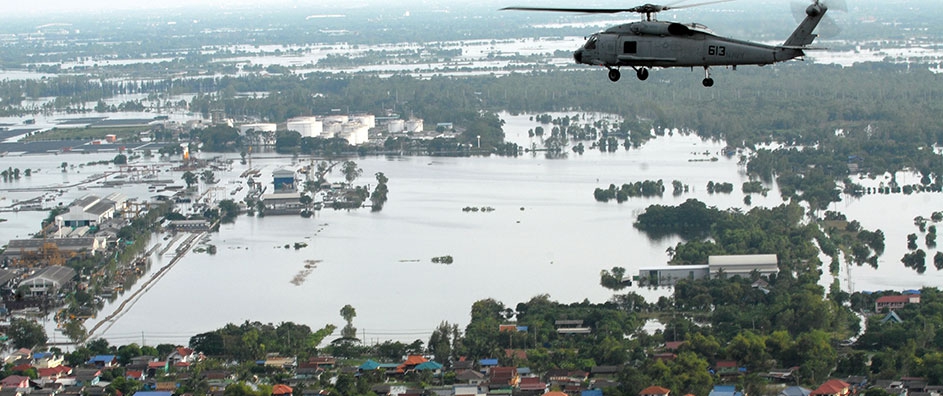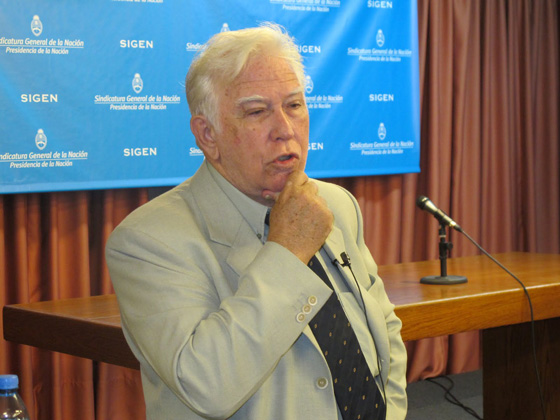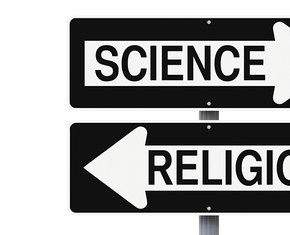The views expressed in our content reflect individual perspectives and do not represent the authoritative views of the Baha'i Faith.
Any religious belief which is not conformable with scientific proof and investigation is superstition, for true science is reason and reality, and religion is essentially reality and pure reason; therefore, the two must correspond. Religious teaching which is at variance with science and reason is human invention and imagination unworthy of acceptance, for the antithesis and opposite of knowledge is superstition born of the ignorance of man. If we say religion is opposed to science, we lack knowledge of either true science or true religion, for both are founded upon the premises and conclusions of reason, and both must bear its test. – Abdu’l-Baha, The Promulgation of Universal Peace, p. 107.
In its latest report, the Intergovernmental Panel on Climate Change concludes that effectively responding to climate change requires humanity to make some hard choices about the grave risks we face.
The scientists who compiled the IPCC report say that the serious nature of those risks has become increasingly clear as our scientific knowledge has evolved, even though “climate change will also continue to produce surprises.” (All content in quotation marks from the March 31, 2014 IPCC report entitled Climate Change 2014: Impacts, Adaptation and Vulnerability) Accordingly, the new report identifies vulnerable people, industries, and ecosystems, concluding that “risk from a changing climate comes from vulnerability (lack of preparedness) and exposure (people or assets in harm’s way) overlapping with hazards (triggering climate events or trends).”
The IPCC scientists also point out that humans, with sufficient resolve and unity of purpose, can target vulnerability, exposure and hazards with rational, intelligent actions that will decrease our risk.
“We live in an era of man-made climate change,” said Vicente Barros, Co-Chair of the IPCC’s Working Group II, the large cohort of scientists who prepared the new report. “In many cases, we are not prepared for the climate-related risks that we already face. Investments in better preparation can pay dividends both for the present and for the future.”
The IPCC report concludes that climate change cannot be reversed at this point in history; that humanity has not properly prepared for the severe and unavoidable impacts it will produce; and that our vulnerability as a species can only be mitigated by better and more extensive preparation. Because they lack the resources to cope and adapt, the report says, “people who are socially, economically, culturally, politically, institutionally, or otherwise marginalized are especially vulnerable to climate change.”
The report says “Impacts from recent climate-related extremes, such as heat waves, droughts, floods, cyclones, and wildfires, reveal significant vulnerability and exposure of some ecosystems and many human systems to current climate variability.” But the IPCC points out that not only the poor and the marginalized will feel the effects: “Impacts of such climate-related extremes include alteration of ecosystems, disruption of food production and water supply, damage to infrastructure and settlements, morbidity and mortality, and consequences for mental health and human well-being. For countries at all levels of development, these impacts are consistent with a significant lack of preparedness for current climate variability in some sectors.”
In other words, climate change will impact everyone.
This scientific consensus – that the entire world is now vulnerable to the impact of climate change – makes the new IPCC report extremely important. In the past, limited scientific research and a range of differing opinions meant scientists saw the potential climate change impacts as primarily regional and highly variable. Now, however, with more research and better evaluative tools, the scientific conclusion has shifted.
The overwhelming majority of scientists now agree that climate change vulnerability, exposure and hazards will affect the entirety of humanity.
This means that we have now, as an entire human race, reached an unprecedented point in history — we have come face to face with a truly global crisis of our own making. That crisis, caused by human action and seemingly insoluble by the system of national governments that now control the world’s policies, cries out for a worldwide solution.

















Comments
Sign in or create an account
Continue with Googleor